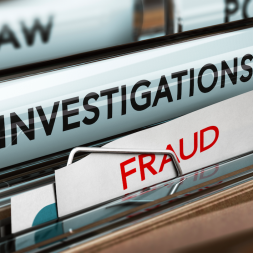Nursing Board Investigations: A Look at the Legal Process
As a nurse practitioner, you’re probably all too familiar with your state’s Board of Nursing. As a requirement to practice, you took the NCLEX and went through the extensive process of obtaining your RN and/or APRN license before beginning in your nursing practice. If you’re an experienced provider, you know all too well what a hassle it can be to renew your license too. Suffice it to say that dealing with the board of nursing can be a little bit of a nuisance at times.
But if you’ve ever been under investigation by the board, the headache of maintaining active licensure can seem like cakewalk in comparison to understanding the legal process when a claim is filed against you.
Before diving into the legal process, it’s important that nurse practitioners understand the role of their state’s BON. To start, BONs exist in each of the 50 states, the District of Columbia and the US territories; all of which comprise the National Council of State Boards of Nursing (NCSBN); an independent, not for-profit organization. Their purpose goes beyond that of being simply a storehouse for nursing licenses; they ultimately serve to protect the public’s health and welfare by overseeing and ensuring that licensed nurses from all levels of practice are providing safe and competent care to the public.
All 59 BONs exist due to each legislature’s enactment of a Nurse Practice Act; a document wherein guidelines and rules provide safe parameters within which nurses must work in order to protect patients from unprofessional and unsafe nursing practice. The act establishes a board of nursing which is made up of nurses and other members who serve for a specific period of time. The BON is given power and authorization to develop administrative rules and regulations that clarify or make the law more specific. Essentially, the board of nursing is the enforcer of the state’s Nurse Practice Act.
Once a state nursing license has been issued by the BON, the board is responsible for monitoring the licensee’s compliance to the law. When a complaint filed against a licensee, each board the follows a specific process to determine whether or not the nurse violated the law. In general, according the the NCSBN, most adhere to the following claims process.
The Complaint and Who Can File
Complaints can be received by the BON from virtually anyone, including patients or their families, employers, other nurses, coworkers, etc. Complaints can be filed by any individual who is concerned that a nurse’s behavior is unsafe, incompetent, or unethical; or by someone who believes a nurse may be practicing under the influence of a substance or is affected by a physical or mental condition. In some cases, if a nurse has been convicted of a crime, the state may initiate its own claim and begin the process of disciplinary action itself. Employment issues such as bedside manners, rudeness and personality conflicts are not within the Board’s authority unless fraud is alleged.
The Investigation
Once a complaint is filed by an individual, the board will begin its Complaint Resolution Process by first determining whether or not the facts as stated in the complaint are a violation of the state’s laws. If evidence suggests of such, the BON will assign a trained investigator (who is often a registered nurse) to begin making further inquiries about the claim. The investigator may interview witnesses, obtain patient records or personnel information, conduct site visits, etc. During this stage of the process, the nurse may be notified of the claim via a “notice of complaint”, or the investigator may call to schedule a meeting with the nurse or show up to their place of practice unannounced. Once sufficient information is collected, the nurse will be given an opportunity to respond to the allegation and present his or her side of the story.
Resolution
The majority of complaints are resolved without the need for a formal administrative hearing and agreement negotiations between the nurse and the board, or their respective representatives are often conducted by mail, by phone or in person. In rare cases, however, administrative hearings are necessary for complaint resolution during which the case is presented to the BON in a formal, trial-like procedure.
Complaints are resolved in one of five ways; either with a dismissal of the claim (if no violation is found), a letter of concern or warning regarding a wrongful action, an agreement regarding concerns such as an expired license or incomplete CE requirements; or there may be a proposed consent order for which the nurse agrees to certain terms and/or conditions of discipline. All resolution results are communicated in writing and include whether or not the resolution involves disciplinary action and if the agreement will be made public.
Potential Disciplinary Actions
Once the board has found a nurse guilty of a violation, it will then decide what, if any, disciplinary action will be taken by considering the underlying cause for the violation and evaluating the risk of harm to patients or the public that the nurse may impose. Possible actions by the board include reprimanding the nurse via a published letter of concern or caution; placing the nursing on probation or imposing restrictions to their practice such as limiting the number of hours worked or requiring peer supervision; imposing a fine, civil penalty or collecting for the recovery costs; or suspending the nurse for a period of time with specific conditions that must be met for reinstatement. In more serious cases the disciplinary action may include revocation or surrender of a license, resulting in the nurse losing his or her right to practice.

